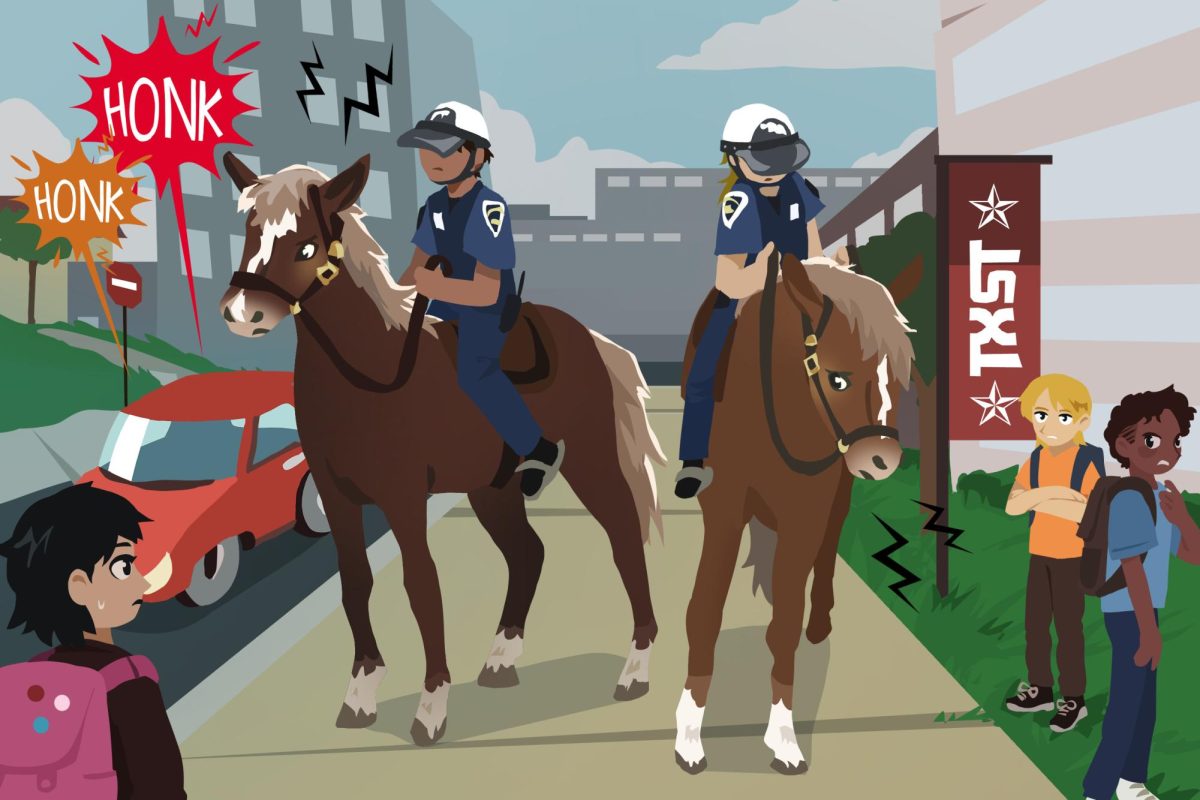The Oscars, the Grammys, the Emmys and other shows are no stranger to drama, and arguably, thrive on it.
Kanye West’s infamous mic-steal from Taylor Swift and Beyonce’s pregnancy reveal at the MTV Video Music Awards are moments still ingrained into pop culture. And who can forget pop culture’s latest phenomenon after the shocking slap at the Oscars.
Will Smith’s decision to get up and slap Chris Rock for making a joke about Jada Pinkett Smith, has been polarizing viewers and celebrities ever since it happened. While Smith was allowed to stay in the Dolby Theatre after the incident, many celebrities decried his actions. Actor Jim Carrey stated Smith’s ability to stay in the building “really felt like this is a really clear indication that we aren’t the cool club anymore.”
While some criticized Carrey for his statement, referring to it as melodramatic and hypocritical, he may be right about one thing: the Oscars just aren’t as cool as they used to be. In fact, Nielsen viewership for the Oscars, as well as other awards shows like the Grammys and the Emmys, has been declining rapidly for the past decade.
In 2010, 41.62 million viewers tuned into the Oscars but that number has been falling over time, and hit a record low in 2021, clocking in at 9.85 million viewers. While viewership for the 2022 Oscars showed a 56% improvement from the viewership for the 2021 Oscars, 2022 viewership was still the second-worst turnout for the Oscars in recorded history. The Grammys were met with a similar decline, as the 2021 Grammys hit its own record low with 8.8 million viewers, down 53% from the year prior. The music award show’s 2022 ratings saw more of the same but encountered a slight 1.4% increase.
It seems that awards ceremonies such as the Oscars and the Grammys, once centerpieces of American celebrity culture and massive opportunities for artists, have lost the stronghold they once had on the general public.
One of the main reasons is that media consumption habits have changed. While viewers of decades past had limited options on television whenever a major event like the Oscars was occurring, viewers today have an endless number of channels, streaming services and even platforms like YouTube or TikTok to surf through instead.
This new media has allowed people to watch awards shows in their own way. With the advent of YouTube, viewers are able to watch the presentation at any time and don’t have to sit through the full programs when they only want to view a specific award or performance. As a result, only the most dedicated viewers feel the need to catch the broadcast live in full, which is in part contributing to the declining views.
However, media habits aside, the perceptions of prestige and honor at the various academies have been shifting throughout the years. Discriminatory behavior, protection of abusers and scandals both new and old have clouded the reputation of establishments such as The Academy of Motion Picture Arts and Sciences and The Recording Academy.
In the backlash to the incident between Rock and Smith, some celebrities claimed the slap was the ugliest incident in the history of the Oscars. However, viewers were quick to point out previous incidences that made them hypocritical.
One common example is Roman Polanski, who fled the country to avoid a prison sentence after being convicted for sexual abuse of a minor, he was awarded an Oscar for directing in 2003 and received a standing ovation by attendees even though he was not in attendance. In 1973, Sacheen Littlefeather, a Native American actress, came on stage on behalf of Marlon Brando to speak out against the mistreatment of Native Americans both in the film industry and in American society, her speech received a mixed reaction from the crowd.
While many years have passed since these instances, the racism and sexism that caused these occurrences still linger. In 1988, Eddie Murphy commented while presenting the best picture award that he didn’t want to attend the show because of how infrequently Black people were nominated for awards.
Not much has changed since then; after becoming the first Black woman to win best actress, Halle Berry gave an emotional speech about how important the moment was for women of color but reneged on her statement 15 years later as no other Black woman has won since.
Sexism also remains rampant as women represent only 14% of all nominations at the Oscars, including just five women out of 449 total nominees for best director in the history of the award. Meanwhile, former Grammy President Neil Portnow received backlash from artists and the audience in 2018 after stating that women “need to step up” in order to receive recognition in the industry. This was after only one woman received a solo Grammy award during the entire telecasted award program, spawning #GrammysSoMale. Portnow claimed that his commentary was taken out of context, but later resigned from his position after sexual misconduct allegations arose against him.
Award show programs have stated they are working on inclusion and diversity initiatives, especially after movements such as the 2020 Black Lives Matter protests and #MeToo movement brought greater scrutiny to the brewing issues in these governing academies. On April 3, Jon Batiste became the 11th Black act to win album of the year at the 2022 Grammys.
Meanwhile, the Oscars have implemented a diversity policy for any film being considered for a nomination. These are steps in the right direction, but the improvements will take a long time to be fully implemented not only in the awards shows but in the culture surrounding them.
It’s worth noting that for many, the whole concept of awards shows seems largely out of touch these days. In a world where income inequality has been growing, inflation has been exploding and the threat of war is looming, many find the ceremonies irrelevant or even grating. These sentiments have been amplified during a global pandemic where celebrities sit together unmasked as COVID-19 cases continue to live on. It seems to be an insult and furthers the sentiment that celebrities and regular Americans live by two separate sets of rules.
Awards shows aren’t all bad. They can do a lot for smaller creators. Forbes reported a “Grammy bounce” for winners of the coveted gramophone; a survey showed that musicians saw a 55% increase in concert tickets and producer fees after the win. Oscar winners also see a similar bump in salary; the average best actor winner can expect up to a $3.9 million increase in pay for roles.
Arguments can be made that awards shows are good because they serve as a form of escapism, and that many find it therapeutic to focus on the life of celebrities and the artwork they create. Anyone that tunes in should not be criticized for still wanting to tune into the ceremonies. After all the scandals and with the evolution of media, people have found newer forms of escapism to relish in, and if industries do not learn to adapt, they will be left behind.
-Tiara Allen is a marketing senior
The University Star welcomes Letters to the Editor from its readers. All submissions are reviewed and considered by the Editor-in-Chief and Opinion Editor for publication. Not all letters are guaranteed for publication.
Opinion: Award shows must reform to recapture audiences
April 6, 2022
Donate to The University Star
Your donation will support the student journalists of Texas State University. Your contribution will allow us to purchase equipment and cover our annual website hosting costs.

























